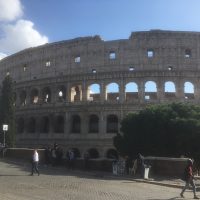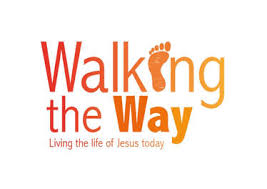Sermon given by Revd Sue McCoan 4th August 2024
Genesis 3; 2 Samuel 11:26 – 12:13
The story of Adam and Eve is a universal story – the characters tell us something about the whole human condition. By contrast, the story of King David is very specific, relating to one individual. We can think of it as a kind of ‘worked example’ of the universal story. So today I’m going to reflect on these both together, and see how the two stories relate to each other, and to us.
Adam and Eve, as we heard, were in paradise. Everything around them was perfect – they had all they needed to live and to flourish, in loving relationship with their creator God. They wanted for nothing – until the serpent came in. The serpent asked about the one thing that they weren’t allowed – the fruit of the tree in the middle. And persuaded them that the one thing they couldn’t have was the one thing they should want.
You won’t die. It’ll be fine. It will give you knowledge of good and evil. What have you got to lose?
Well, plenty, as it turns out. But let’s look at David, now, and the temptation he was facing.
At this point in the story, before our reading, David has been enjoying considerable success in life. He has been victorious in various battles; he has been crowned king of both Israel and Judah, thus uniting the whole country and bringing peace to the people. He has several wives – not unusual in those days – and they have borne him sons. (2 Samuel chapter 3 lists them all). He has, in short, everything he needs. And you would think he had everything he wanted. But David, like Adam and Eve, is tempted to something that he was not supposed to have. In his case, not fruit but a beautiful woman, Bathsheba.
David knew Bathsheba was married, to Uriah, but Uriah was away in the army, so that’s handy, because he need never know… Bathsheba getting pregnant was inconvenient but easily dealt with – David got Uriah back from the battlefield and tried to make it look as if the child was his; when that didn’t work, David sent him back to battle and made sure that he would get killed. ‘Oh, Bathsheba, I’m really sorry for your loss; take your time to mourn’ – and then it’s all sorted, as far as David is concerned. Bathsheba moves in, and has a healthy baby boy.
Adam and Eve eat the fruit. David has his woman. The deed is done. What then?
For Adam and Eve, the change is instant. They see things differently. They see their own bodies and are suddenly embarrassed; they have become self-conscious. They cover up, and they try to hide. But you can’t hide from God. And it’s the covering up and the hiding that alerts God to the fact that something has gone badly wrong.
King David, who is much more worldly-wise, has arranged his cover-up in advance. He made sure other people did the dirty work with Uriah. Killed in battle? I was miles away – I never touched him. David thinks he’s got away with it. But you can’t hide from God.
God comes to David in the form of Nathan the prophet, with his heartbreaking story of the poor man and his beloved pet lamb. It works. David is outraged at the rich man – so heartless! He deserves to die! And pay back fourfold! And Nathan quietly says, You are the man.
Adam, Eve, David – God has found them out. God knows everything. After all God had given them, after all God had done for them. How will God react?
We might imagine, in the same way as David on hearing Nathan’s story – they deserve to die. And maybe they do. But that’s not what God does.
Adam and Eve have lost their innocence. They no longer belong in a perfect place; they have to leave the garden of Eden. But they are not thrown into the pit; the are not made destitute. They will have food, though they will have to work for it; they will have children, because they can no longer live for ever, but childbirth will be painful. And – this is a lovely touch, which says to me that God is more sad than angry – before they go, God makes them proper clothes. You can’t send someone out in a fig-leaf.
They need to build a new life; they need to build a new relationship with God. It won’t be easy. But God has given them the opportunity to do it. This is not the end.
David, too, does not die. There will be violence in his life; his wives will shame him; everyone will know what he has done. And in the verses just after our reading, Nathan tells David that Bathsheba’s child, the child that he fathered, will die. David will not profit from this episode.
The humiliation of being found out, and the death of his child, might seem to David to be worse than death. But God wants him to live to face the consequences of his actions. And God gives him the opportunity to repent, and to rebuild his relationship with God.
Looking at these two stories together tells us some important things about God’s forgiveness.
The first is that forgiveness is offered in place of punishment. God had told Adam and Eve that if they ate the fruit they would die; David saw, through Nathan’s story, that he too deserved death. This is a serious situation, and forgiveness is a serious remedy. It is most definitely not an easy way out, not a soft option.
The second thing, and the reason it’s not a soft option, is that forgiveness means facing up to what you have done. Nathan spells it out for David: God says, I gave you your master’s house, and your master’s wives, I gave you the house of Israel and of Judah, and if that had been too little I would had added as much more. Why have you despised the word of the Lord, to do evil in his sight? You have struck down Uriah the Hittite with the sword, and have taken his wife to be your wife.’ It is not easy to have our shortcomings laid bare before us.
But the reason God does this, and the reason that it is worth all the squirming, is the third thing, which is that forgiveness is all about building or rebuilding relationship. God longs to be in relationship with us – God created human beings for that very purpose – and God will do anything to rebuild that relationship when we break it. God sent his only Son, Jesus, to live our human life, suffer our human pain and die our human death, so that our human lives might be transformed through him. The least we can do is face up to embarrassment and humiliation when it’s deserved.
And this applies to the small things as well as to serious crimes. It matters that we bring to God everything that stands in the way of our relationship with God, even the little moments of grumpiness, or the time-wasting, or skipping prayer because we’re running late. Confession is our gift, and it’s ours to use; it’s all part of our growing closer to God.
So I’m going to leave a time now for each of us to reflect on our own sinfulness, in the presence of God. And then I’ll close with a prayer of confession.
silence
God of love,
Who sees into the very heart of our being,
Let us not flinch from your light and truth.
Let us dare to stand before you,
And face with you those things that we would rather hide.
And as we stand in your gaze,
Let us know that we stand also in your compassion,
That you look on us with endless love.
In the light of truth and love,
We dare to claim the forgiveness you promise.
We dare to believe that your goodness far outweighs our faults.
God of love, in your mercy,
May we turn again to live in your light,
And may we become light to those around us.
We pray in the name of Jesus, the light of the world.
Amen.





